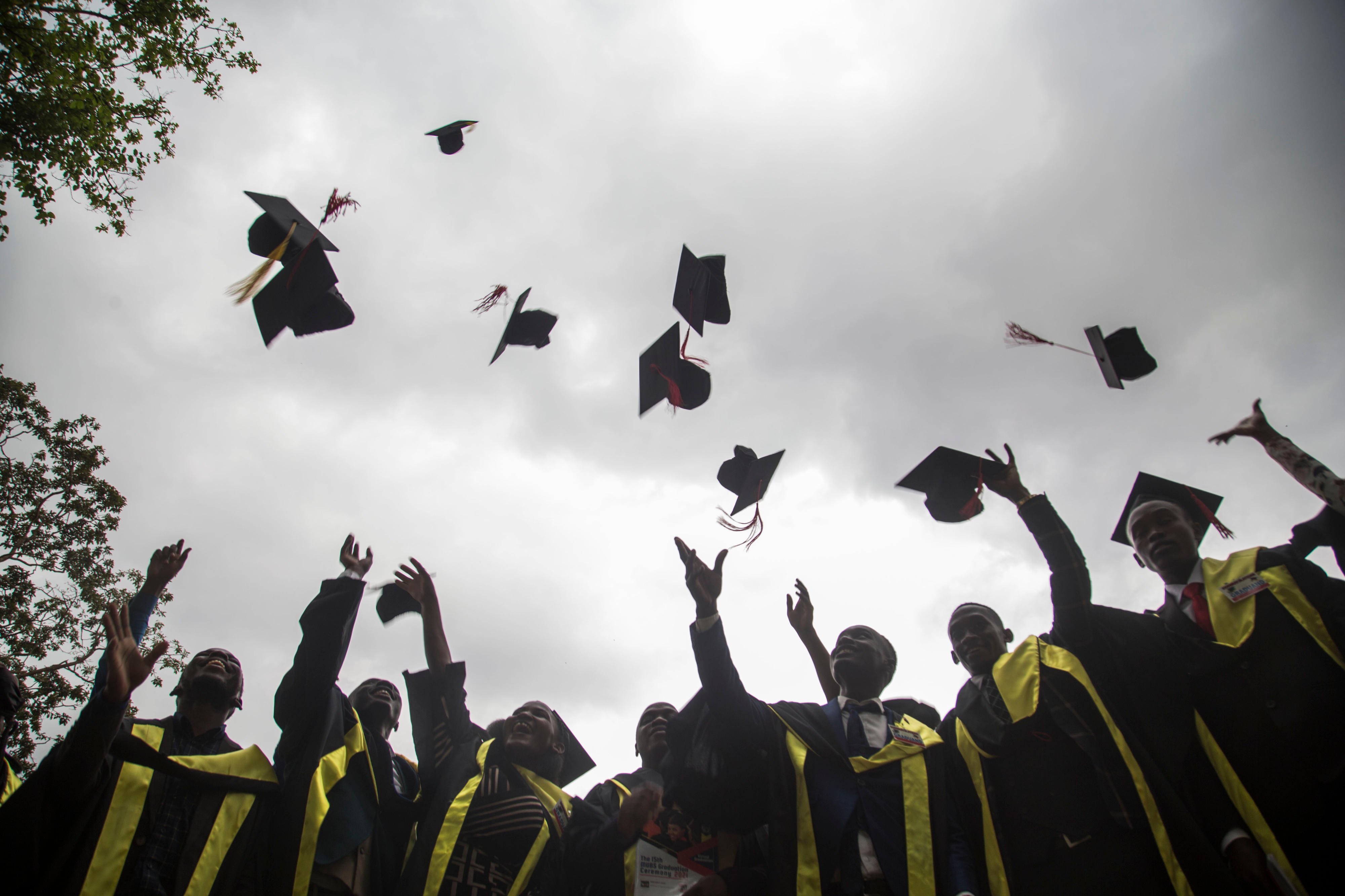Prime
Expired degrees: Crisis in education a wakeup call

Mubs graduands celebrate at the 15th graduation ceremony on October 1, 2021. PHOTO/ISAAC KASAMANI
What you need to know:
- Those who slept on the job and allowed this rot to hit the apex of the knowledge in the country should own up and do the noble thing after taking stock of their mistakes
The nation is staring at an unprecedented class action suit. Thousands of graduates are carrying around expired degrees from institutions of higher learning across the country with thousands more currently enrolled and studying the unaccredited courses.
Everything that could possibly go wrong did so with revelations, this week, that several graduates have had their degrees rejected by institutions outside the country when they applied to upgrade their qualifications.
The air in the education sector is filled with trepidation: it is pungent, a fetor as offensive as it is embarrassing. At the centre of the national scandal in which students have been enrolled and on expired programmes is the National Council for Higher Education (NCHE).
The council was established by the Universities and Other Tertiary Institutions Act, 2001 to, among others, recognise institutions of higher learning and their programmes.
At least 2,260 programmes are listed as expired on NCHE website, leaving the fate of tens of thousands of current and former university students hanging in the balance.
Section 119A of the law provides that: “For the avoidance of doubt, no person shall operate a university, other degree-awarding institution or a tertiary institution without the prior accreditation of its academic and professional programmes by the National Council for Higher Education.”
Yet in the wake of the critically shameful revelation, Prof Eli Katunguka, the vice chancellor of Kyambogo University – who doubles as the chairman of NCHE – demanded that the regulator “should pull down their website and put our house [in] order”.
The head of an institution that has 222 programmes categorised as invalid or expired by the regulatory body he leads seems to be flagrantly calling for a cover-up. That is quite telling.
The nation should be worried that a body set up to regulate its higher institutions could pick billions of shillings from students annually for programmes they have not approved.
And that is before one even questions the institutions that continue to advertise, teach and award degrees for such courses. The scandal points to gross neglect of responsibility by both the institutions of higher learning and the NCHE.
It is the result of a deep-rooted cancer of putting money ahead of everything of value. Institutions are only concerned with the fees payments and NCHE is happy to receive the Shs700,000 it levies per programme and Shs20,000 that each student pays.
A class suit is not one anyone would recommend but it is probably the only undertaking that will help pour ice-cold water on the sleeping officials and jolt them into reality.
A cover-up is unacceptable. We demand those who slept on the job and allowed this rot to hit the apex of the knowledge in the country own up and do the noble thing after taking stock of their mistakes.
The nation cannot churn out national shame in the form of graduates and defraud already overburdened parents and then turn the entire NCHE into a ‘Nasser Road’ where decisions are edited at whim.




